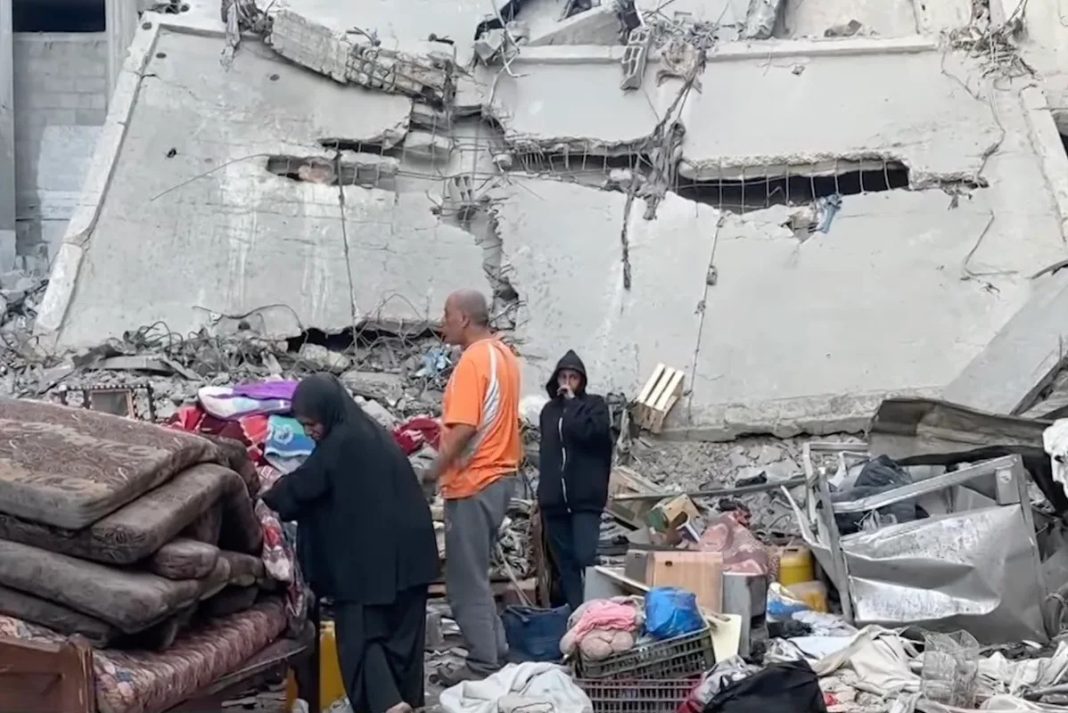While the United States-brokered ceasefire reached between Israel and the Palestinian group Hamas earlier this month has provided a sliver of respite, repeated Israeli violations have left Palestinians constantly fearful of renewed attacks, unable to resume the lives they lived before Israel’s genocidal war on Gaza began in October 2023, let alone begin anew.
On Wednesday alone, more than 100 people, mostly women and children, were killed and 253 others injured in several Israeli air strikes on southern Gaza, the worst violation of the ceasefire.
The Israeli army launched some 10 air strikes on Khan Younis in southern Gaza early on Thursday. This is despite Israel’s assertion on Wednesday of a “resumption” of the ceasefire after a large wave of strikes it claims was carried out in retaliation for Hamas killing one of its soldiers in southern Gaza – an accusation Hamas denies.
According to Gaza’s Health Ministry, at least 211 people have been killed and 597 others injured in Israeli attacks since the ceasefire took effect.
“While the ceasefire might technically exist, the sounds of the explosions, the sounds of gunfire coming from the eastern side [of Gaza], the deep mechanical hum of the drones … in the skies of the entire Gaza Strip is a constant reminder of how fragile this ceasefire has been so far,” said Al Jazeera’s Hani Mahmoud, reporting from Gaza City, adding that it is also “a reminder that peace is out of reach in this region.
“People always talk about how uncertain they are, how concerned they are of the ability of the ceasefire to hold … and to reduce the level of fear and trauma they have been experiencing.”
Israel’s attacks on Gaza are in violation of the ceasefire agreement that came into effect on October 10 under US President Donald Trump’s 20-point plan. Phase one includes the release of Israeli captives in exchange for nearly 2,000 Palestinian prisoners. The plan also envisages the rebuilding of Gaza and the establishment of a new governing mechanism without Hamas.
‘Where are the international guarantees that were promised?’
The psychological impact of Israel’s war on Gaza, which has killed at least 68,527 people and wounded 170,395, on Palestinians is profound; the relentless suffering is unimaginable.
Mazen Shaheen speaks to Al Jazeera as Israeli attacks on Gaza continue [Screen grab/Al Jazeera]
“We’re waiting for a real chance to try and rebuild our lives. We started to pick things up again during the first week or two after the war, but then the truce was breached; thankfully, it ended quickly. We hadn’t even caught our breath when the second breach happened,” Mazen Shaheen, a Gaza resident, told Al Jazeera.
Many Palestinians are losing hope due to Israel’s continuous breaches of the ceasefire.
“Now, after the truce and the new wave of bombings on Gaza, people who had just begun to feel some sense of safety, peace, and reassurance – who believed the war was finally over – are once again living in fear, especially the children and women,” Gaza City resident Hassan Lubbad told Al Jazeera.

Hassan Lubbad speaks to Al Jazeera as Israeli attacks on Gaza continue [Screen grab/Al Jazeera]
In the streets of Gaza City, people talk about “how the ceasefire hasn’t brought any certainty or peace, only more questions of when the next strike will happen, will it enter more easily or will there be an end to this cycle of fear?” said Mahmoud.
Palestinians are determined to send a message to the world about their thoughts on the ceasefire and their expectations of the international community.
“The message we want to send is this: where are the international guarantees that were promised? Where are the mediating countries that helped broker the ceasefire and pledged to ensure its continuation?” said Shaheen.
One of Shaheen’s friends was wounded in Wednesday’s attacks. His friend’s condition is now stable, he said.

Suha Awad talks to Al Jazeera as Israeli attacks on Gaza continue [Screen grab/Al Jazeera]
“We want a complete end to the war, a total ceasefire. We just want to live in safety. We want full commitment to the truce, not just for a week or two, only for things to return to aggression and war,” Gaza City resident Suha Awad told Al Jazeera.

